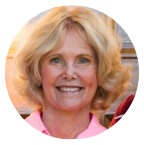March Expert Panel: Including Individuals with Disabilities in STEM Courses, Research, and Careers
Overview Blog Playlist Expert Panel Discussion Resources Synthesis Brief
**Please note that the ASL interpreter comes into frame at 2 1/2 minutes into the recording.
Download: Transcript
Recorded: Mar 24, 2021 at 3:00 PM Eastern Daylight Time
Description: The webinar will bring together four leaders who will share promising practices in their sustained projects that help make STEM fields more welcoming and accessible to students with disabilities.
MODERATOR AND PANELIST BIOS
Moderator:
Richard E. Ladner is a Professor Emeritus in the Paul G. Allen School of Computer Science and Engineering at the University of Washington. After a long career in theoretical computer science research he moved to the area of accessible computing research which is an important subarea of human-computer interaction (HCI). His research continues, but he also leads projects to bring more people with disabilities into computing fields. He leads the NSF-funded AccessComputing Alliance that helps computing students at all levels complete their degrees in computing fields. He also co-leads the NSF-funded AccessCSforAll that helps prepare K-12 teachers to include students with disabilities in their computing courses. He helps lead the Blocks4All project that created an accessible block-based programming environment for touchscreen devices. See Richard's Video >>
Richard Ladner received the 2020 National Science Board (NAB) Public Service Award. We provide this link to an inspiring video related to his award.
Panelists:
Sheryl Burgstahler is the director of Accessible Technology Services and the DO-IT Center (where DO-IT stands for Disabilities, Opportunities, Internetworking and Technology). She is also Co-PI of the NSF-funded AccessComputing project led by the University of Washington to increase the participation and success of individuals with disabilities in computing academic programs and careers. See Sheryl's Video >>
Jeanne Reis, M.Ed., is Co-Director of the ASL Ed Center. For over 20 years, Jeanne has explored the many ways the Deaf Community supports and engages deaf learners of all ages, particularly preK-12 students impacted by delayed first language acquisition due to lack of early language input. Since 2005, Jeanne has led the design and development of ASL Clear, a STEM learning app centered in American Sign Language (ASL) linguistic principles, working in close collaboration with Deaf STEM subject matter experts. Jeanne is currently Principal Investigator on an NSF funded project exploring ASL-centric user interface design, in partnership with Dr. Erin Solvey at Worcester Polytechnic Institute. Jeanne's long-standing collaborations with state departments of education and standardized assessment developers to translate annual standards-based assessments into ASL led to an opportunity to shape the research design of an 18-state research collaboration, and contribute to publication of Guidelines for ASL Assessment. Along with ASL Ed Center Co-director Rachel Boll, Jeanne also supports ongoing development and nationwide provision of the ASLAI, a standardized computer-based ASL Language Arts assessment for pre-K-12 students, originally developed by Dr. Robert Hoffmeister. See Jeanne's Video >>
Dr. Emily Moore is Director of Research & Accessibility for PhET Interactive Simulations (http://phet.colorado.edu), in the Department of Physics at the University of Colorado Boulder. Dr. Moore leads efforts to increase inclusion of learners with disabilities in STEM through inclusively designed interactives, which includes the design, implementation, and study of accessible auditory, visual, and haptic displays, and alternative input to support access to simulations by learners with sensory, mobility, or cognitive disabilities. She designs and advises on research, data collection, and analysis across various instructional contexts and has extensive experience in simulation co-design, qualitative and quantitative research methods, and the pedagogical use of simulations. In her work, Dr. Moore has directed teacher professional development videos, co-taught popular MOOCs on accessibility and multimodal design, and has co-designed numerous classroom activities with middle school, high school, and college teachers. See Emily's Videos >>



